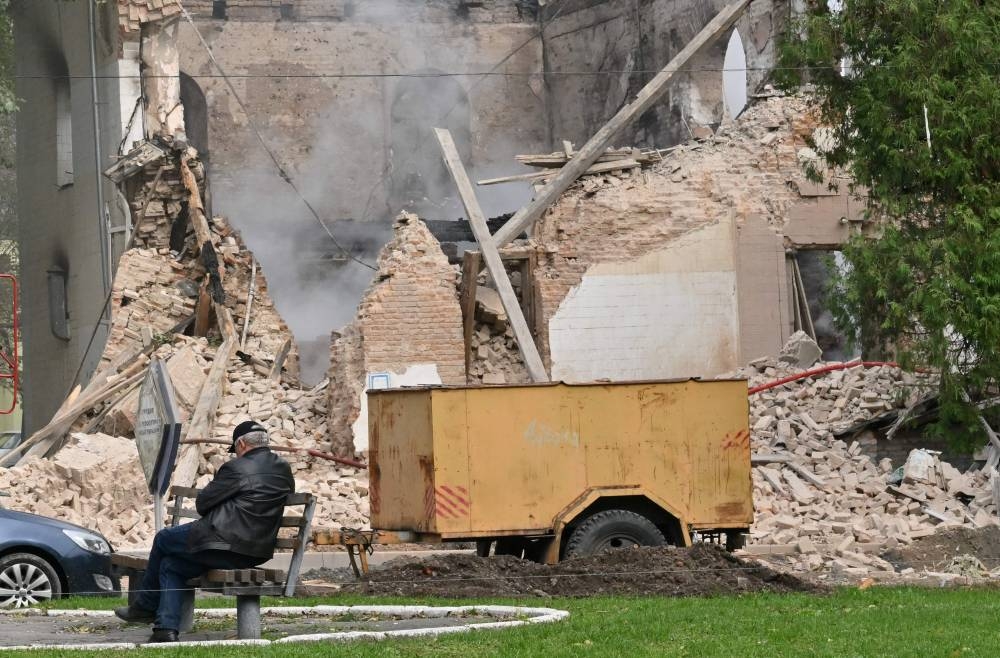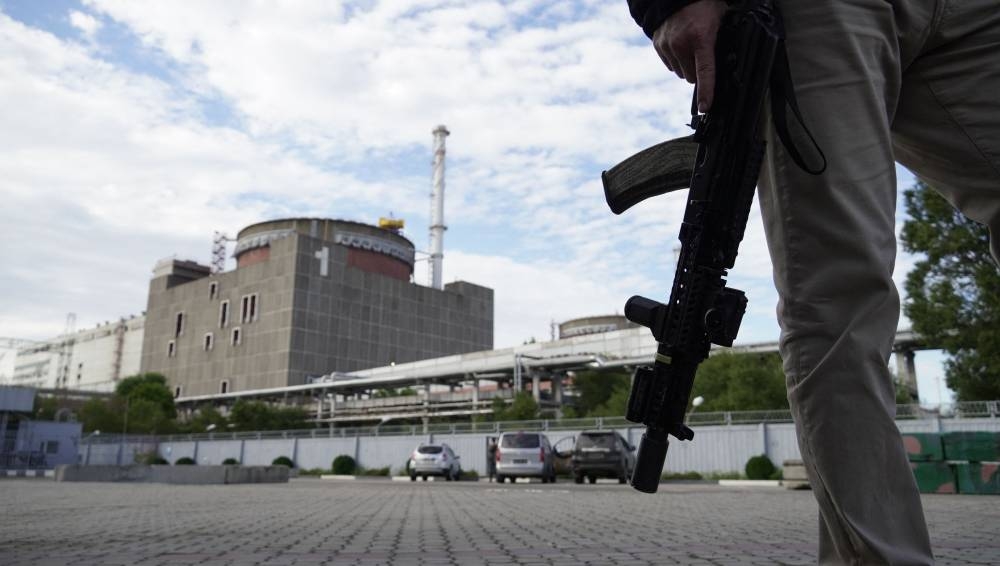KYIV, Oct 5 — Russian President Vladimir Putin said today that he expected the situation to “stabilise” in Ukrainian regions annexed by the Kremlin after Moscow suffered military setbacks and lost several key towns to Kyiv.
Ukraine earlier claimed victories over Russian troops in the eastern region of Lugansk as the Kremlin vowed to recapture territory lost in a lightning Ukrainian counteroffensive.
In recent weeks, Ukraine’s forces, bolstered by Western weapons, have wrested Russian troops out of a string of towns and villages in the southern Kherson region and the eastern separatist strongholds of Lugansk and Donetsk.
“We are working on the assumption that the situation in the new territories will stabilise,” Putin told Russian teachers during a televised video call.
Just hours earlier, the Ukrainian-appointed head of Lugansk Sergiy Gaiday announced that the “de-occupation of the Lugansk region has already officially started”.
A senior Russian lawmaker called on military officials to tell the truth about developments on the ground in Ukraine following the string of bruising defeats.
“We need to stop lying,” the chairman of the lower house of parliament’s defence committee, Andrei Kartapolov, told a journalist from state-run media.
“The reports of the defence ministry do not change. The people know. Our people are not stupid. This can lead to loss of credibility.”

‘Not be returned’
Putin today signed into legislation his annexation of four Ukrainian territories — including Lugansk — as the European Union agreed a new round of sanctions against Moscow in response.
Kremlin spokesman Dmitry Peskov said Moscow would take back land it lost to Kyiv within the annexed regions, vowing they would be “Russian forever and will not be returned.”
Putin last week signed agreements with the Moscow-installed leaders of the four regions to become subjects of the Russian Federation, despite condemnation from Kyiv and the West.
The four territories — Donetsk, Kherson, Lugansk and Zaporizhzhia — create a land corridor between Russia and the Crimean Peninsula, which was annexed by Moscow in 2014.
Together, the five regions make up around 20 per cent of Ukraine.
The Kremlin annexed the territories after hastily conducting referendums, denounced as void by Kyiv and its Western allies, but has yet to confirm what areas exactly of those regions are being annexed.
Russian forces do not have full control over Kherson or Zaporizhzhia and recently lost control of several settlements in Donetsk.

‘Strike back’
“The way we are regrouping (our forces) along the front means that we can gather strength and strike back,” Kirill Stremousov, the Moscow-appointed deputy head of Kherson region, told the RIA Novosti news agency.
Ukraine’s forces “won’t enter Kherson. It’s impossible,” he said referring to the region’s eponymous main city.
Yesterday, Ukrainian President Volodymyr Zelensky said his forces were making “rapid and powerful” gains and had retaken “dozens” of villages in the east and south.
The latest battlefield maps from Moscow showed that Russian troops had left many areas in Kherson, including along the west bank of the Dnipro River.
In Kharkiv, the maps indicated that Russian forces had almost entirely abandoned the east bank of the Oskil River, potentially giving the Ukrainians space to shell key Russian troop transportation and supply corridors.
While Russian authorities remain largely silent about the extent of the setbacks, war correspondents of pro-Kremlin media admitted that troops were in trouble.
“There won’t be any good news in the near future. Not from the Kherson front nor from Lugansk,” newspaper journalist Alexander Kots wrote on his Telegram channel with over 640,000 followers.
Near Lyman, a strategic transport hub in Donetsk that Kyiv recaptured over the weekend, a Ukrainian paratrooper told AFP that forces were “exhausted”.
‘Chase them’
“We’ll rest for a bit and then we will go further,” said the young, bearded soldier. “We will chase them,” he added.
Yesterday, US President Joe Biden told Zelensky that another US$625 million (RM2.8 billion) in military assistance was on the way.
The new batch includes more Himars multiple rocket launchers, which have allowed Ukraine to strike Russian command depots and arms stockpiles far behind the front line.
From the EU, there were no details about the nature of fresh sanctions agreed against Russia.
The latest package — the eighth since Russia’s invasion in February — is now going through a final approval procedure which, if no objections emerge, will be published and come into effect on Thursday, the Czech Republic’s EU ambassador said on Twitter.
Otherwise, Russia insisted that it should be part of an international probe into leaks in the Nord Stream pipeline that carries gas from Russia to Europe. Sweden has blocked off the area pending an investigation.
Moscow has accused the West of being behind blasts that lead to four leaks on the Baltic Sea pipelines.
Both Moscow and Washington have denied involvement. — AFP






















